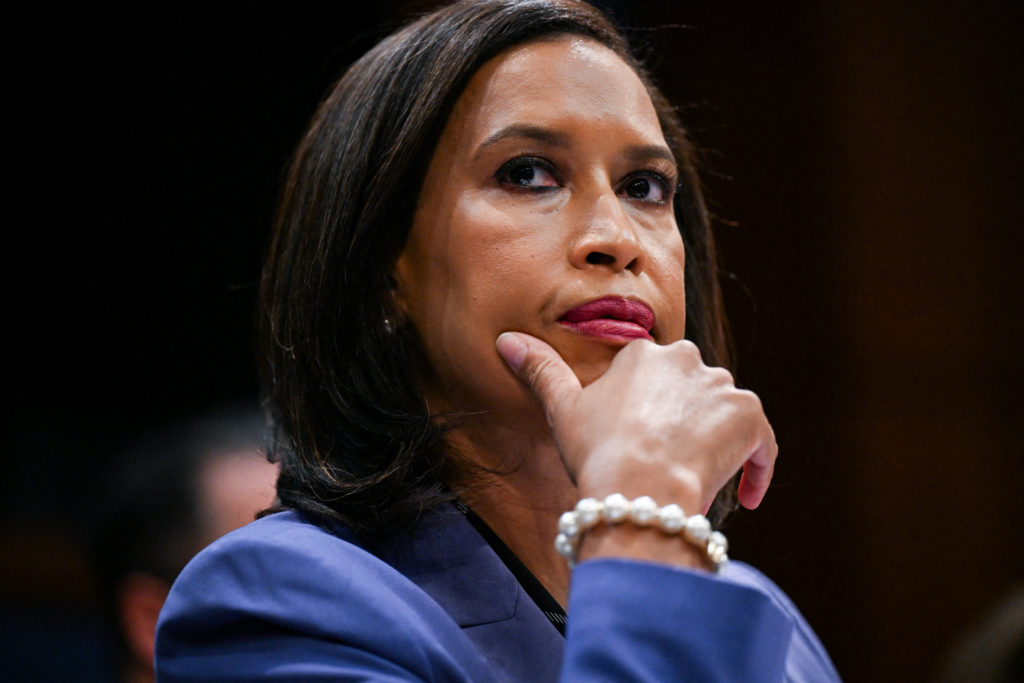D.C. Attorney General Brian Schwalb Criticizes Trump's Policing, Defends Juvenile Crime Record
D.C. Attorney General Brian Schwalb publicly criticized Trump's policing strategies while simultaneously defending his own office's performance in prosecuting juvenile crime, addressing recent public discourse on these issues.
Subscribe to unlock this story
We really don't like cutting you off, but you've reached your monthly limit. At just $5/month, subscriptions are how we keep this project going. Start your free 7-day trial today!
Get StartedHave an account? Sign in
Overview
- D.C. Attorney General Brian Schwalb criticized Trump's policing approach, indicating a clear divergence in their public safety philosophies for the nation's capital.
- Schwalb also defended his office's record on prosecuting juvenile crime, addressing concerns about youth offenses within the District of Columbia.
- His statements highlight an ongoing public debate regarding effective law enforcement strategies and accountability for youth involvement in criminal activities.
- The Attorney General's defense suggests a response to potential scrutiny concerning the handling of juvenile cases and overall crime rates in D.C.
- This public commentary by Schwalb underscores the political and operational tensions surrounding crime prevention and prosecution strategies in the District.
Report issue

Read both sides in 5 minutes each day
Analysis
Analysis unavailable for this viewpoint.
Articles (3)
Center (0)
No articles found in the Center category
FAQ
Attorney General Brian Schwalb criticized Trump's federal law enforcement surge as ineffective and illegal, stating that unilateral federal actions taken without coordination or warning do not promote long-term public safety. He condemned the use of masked agents in unmarked cars, armed National Guard patrols untrained in local policing, and federal attempts to take over the police force, arguing these actions undermine public trust and threaten community-police relationships essential for effective policing.
Brian Schwalb defended his office's performance in prosecuting juvenile crime by addressing concerns about youth offenses, implying efforts are ongoing to hold juveniles accountable and manage crime involving youth in the District, although specific prosecution statistics were not detailed in the cited sources.
Attorney General Schwalb filed a lawsuit challenging the Trump Administration's deployment of National Guard troops to D.C., asserting that the deployment was unlawful, unconstitutional, and undemocratic because it occurred without the consent of D.C. local authorities. The lawsuit is supported by a coalition of 22 attorneys general who argue that the use of military forces as local law enforcement is prohibited by the Constitution.
D.C. leaders, including Attorney General Schwalb, view Trump's federal law enforcement surge as undermining public trust, threatening the city's autonomy, and risking destruction of vital community-police trust. They contend that while crime rates have fallen, sustainable public safety requires coordinated partnerships and long-term support rather than unilateral federal actions like armed National Guard patrols.
During congressional hearings, concerns were raised about a significant increase in truancy in D.C., with 18,000 students uninvestigated for skipping school, and that most carjackings and related crimes were committed by juveniles. These challenges highlight a juvenile crime and education crisis that local leaders are urged to address more aggressively to improve public safety and youth accountability.
History
- This story does not have any previous versions.

